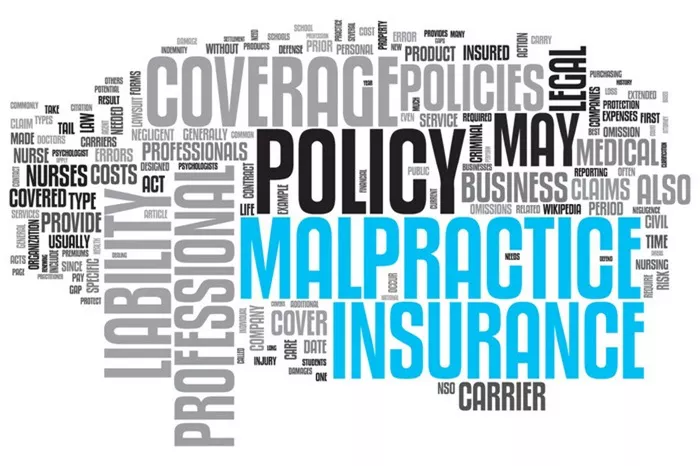As a counselor, safeguarding your practice from potential legal issues is crucial. Liability insurance serves as a critical line of defense, protecting you against claims of negligence, misconduct, or other professional liabilities. This article delves into the best liability insurance options for counselors, providing a comprehensive guide to understanding, selecting, and managing the right coverage.
Understanding Liability Insurance for Counselors
Liability insurance for counselors is designed to offer protection against legal claims and lawsuits that may arise from your professional activities. It helps cover the costs associated with defending yourself in court and paying any settlements or damages awarded. Here’s a closer look at the key types of liability insurance relevant to counselors:
Professional Liability Insurance (Errors and Omissions Insurance)
This insurance covers claims related to mistakes, errors, or omissions in the professional services you provide. For counselors, it addresses issues like alleged negligence, misdiagnosis, or failure to follow standard practices.
Coverage for Negligence: Includes protection if a client claims that your professional advice or treatment caused harm.
Legal Defense Costs: Covers the costs associated with defending yourself against a lawsuit, even if you are not found liable.
General Liability Insurance
General liability insurance protects against claims of bodily injury, property damage, or personal injury that occur on your premises or as a result of your business activities. Though not specific to counseling, it provides a broader safety net.
Coverage for Accidents: Includes protection for accidents that happen at your office or during counseling sessions.
Property Damage: Covers damage to client property during sessions or events.
Medical Malpractice Insurance
Although typically associated with medical professionals, this insurance can also be relevant for counselors who provide therapeutic services. It covers claims related to professional errors that result in client harm.
Therapeutic Errors: Protects against claims arising from alleged mistakes in treatment or advice.
Client Harm: Provides coverage if a client experiences negative outcomes due to your professional actions.
Key Considerations for Choosing Liability Insurance
When selecting liability insurance, it’s important to consider several factors to ensure that you are adequately protected:
Coverage Limits
Assess the coverage limits offered by different policies. Higher limits provide greater protection, which is especially important if you face significant claims.
Minimum Coverage: Ensure that the policy covers the minimum requirements for your state or professional association.
Higher Limits: Opt for higher limits if your practice involves higher risks or more complex cases.
Exclusions
Review the policy exclusions to understand what is not covered. This is crucial for avoiding surprises in the event of a claim.
Specific Exclusions: Identify any exclusions related to particular types of claims or professional activities.
Additional Coverage: Consider adding endorsements or riders to cover excluded areas if needed.
Costs
Compare the premiums of different policies while balancing cost with the coverage provided. It’s important to find a policy that fits within your budget but does not compromise on essential coverage.
Premium Comparison: Obtain quotes from multiple providers and compare the costs.
Value for Money: Evaluate the coverage and benefits relative to the premium to ensure good value.
Reputation of the Insurer
Research the insurance provider’s reputation and financial stability. A reliable insurer will handle claims efficiently and offer strong support.
Customer Reviews: Look for reviews and testimonials from other counselors.
Financial Strength: Check the insurer’s financial ratings to ensure they can cover large claims.
Legal and Regulatory Requirements
Ensure that the policy meets any state or professional association requirements for liability insurance.
State Requirements: Verify the minimum insurance requirements for your state.
Professional Standards: Confirm that the policy aligns with the guidelines of your professional association.
Top Liability Insurance Providers for Counselors
Here is a detailed look at some of the leading insurance providers offering liability insurance tailored to counselors:
1. The Hartford
The Hartford is known for its comprehensive liability insurance solutions for counselors. They offer customizable policies and robust support services.
Customizable Coverage: Tailor your policy to fit your specific practice needs.
Support Services: Access resources and support for managing risks and handling claims.
2. CPH & Associates
Specializing in insurance for mental health professionals, CPH & Associates provides policies with high coverage limits and competitive premiums.
High Coverage Limits: Offers substantial coverage for various types of claims.
Competitive Rates: Provides affordable premiums for comprehensive coverage.
3. HPSO (Healthcare Providers Service Organization)
HPSO offers specialized liability insurance for counselors, with extensive coverage options and risk management resources.
Specialized Coverage: Designed specifically for mental health professionals.
Risk Management: Provides tools and resources to help mitigate risks.
4. NSM Insurance Group
NSM Insurance Group provides flexible liability insurance policies that cater to the diverse needs of counseling practices.
Flexible Options: Customize your policy to match the unique aspects of your practice.
Comprehensive Coverage: Includes a wide range of coverage options.
5. Professional Liability Insurance for Counselors (PLIC)
PLIC focuses on professional liability insurance for counselors, offering competitive rates and extensive support services.
Tailored Solutions: Offers policies designed for the counseling profession.
Support Services: Provides additional support for handling claims and managing risks.
See Also: What Does It Cover?
How to Apply for Liability Insurance
1. Assess Your Needs
Begin by evaluating your specific needs and risks associated with your counseling practice. This includes understanding the types of services you offer and the potential risks involved.
Risk Assessment: Identify areas of your practice that may be vulnerable to claims.
Coverage Requirements: Determine the coverage limits and types of insurance you need.
2. Obtain Quotes
Contact multiple insurance providers to get quotes for liability insurance. This allows you to compare coverage options and costs.
Request Quotes: Reach out to several providers for detailed quotes.
Compare Options: Evaluate the coverage and costs of each quote.
3. Review Policies
Carefully review the terms and conditions of each policy. Look for any exclusions or limitations that may impact your coverage.
Policy Terms: Examine the specifics of what is covered and any exclusions.
Coverage Details: Ensure that the policy meets your practice’s needs.
4. Choose a Policy
Select the policy that offers the best coverage for your needs at a cost that fits your budget. Consider both the coverage and the reputation of the insurer.
Coverage and Cost: Choose a policy that balances comprehensive coverage with affordability.
Insurer Reputation: Ensure the insurer has a good track record for handling claims.
5. Purchase and Maintain Your Policy
After selecting a policy, complete the purchase and ensure that you maintain your coverage by making timely premium payments and renewing the policy as required.
Purchase: Finalize the policy purchase and ensure all details are correct.
Ongoing Maintenance: Keep up with premium payments and review the policy periodically.
Tips for Managing Liability Risks
1. Maintain Accurate Records
Keep detailed records of all client interactions, treatment plans, and other relevant documentation. Accurate records can be crucial in defending against claims.
Documentation: Ensure all client interactions are well-documented.
Record Keeping: Store records securely and ensure they are easily accessible.
2. Follow Best Practices
Adhere to established best practices and ethical guidelines in your counseling practice to minimize the risk of claims.
Ethical Guidelines: Follow professional codes of conduct and ethical guidelines.
Informed Consent: Ensure clients are fully informed about their treatment and any associated risks.
3. Stay Informed
Keep up-to-date with changes in laws, regulations, and best practices related to counseling. Regularly review and update your liability insurance policy as needed.
Continuing Education: Participate in professional development and training.
Policy Review: Regularly review your insurance policy to ensure it remains relevant.
4. Seek Professional Advice
Consult with legal and insurance professionals to ensure you have the right coverage and understand your obligations and rights.
Legal Consultation: Seek advice from a legal professional familiar with counseling practices.
Insurance Advice: Consult with an insurance advisor to ensure your policy meets your needs.
Conclusion
Selecting the best liability insurance for counselors is a critical step in protecting your practice from potential legal issues. By understanding the types of coverage available, evaluating key considerations, and comparing top providers, you can make an informed decision that safeguards your professional reputation and financial stability. The right liability insurance provides essential protection, allowing you to focus on delivering quality care to your clients with confidence.






















